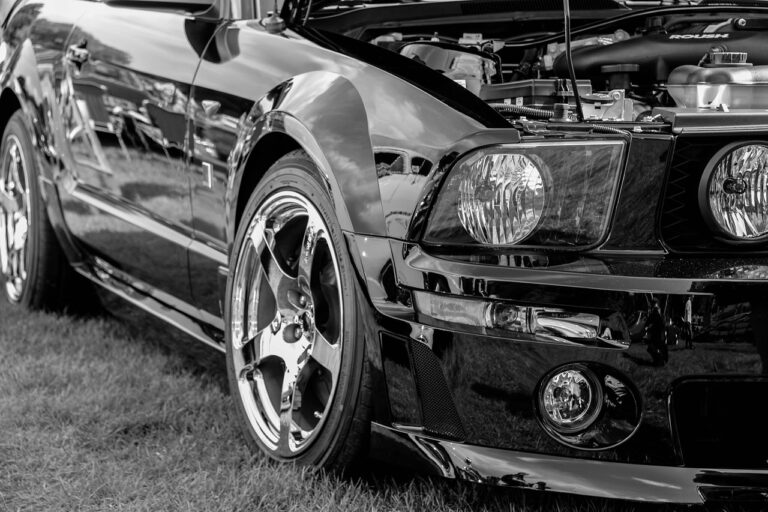The Future of Auto Auctions: Predictions and Insights: Diamondexch999 login, Sky exchange sign up, Diamondexch999
diamondexch999 login, sky exchange sign up, diamondexch999: The future of auto auctions: predictions and insights
Auto auctions have long been a staple of the automotive industry, providing a platform for buyers and sellers to come together and transact on vehicles. As technology continues to advance rapidly, the landscape of auto auctions is also evolving, with new trends and innovations shaping the way auctions are conducted. In this article, we’ll take a deep dive into the future of auto auctions, exploring predictions and insights that can help stakeholders navigate this ever-changing landscape.
The rise of online auctions
One of the most significant trends in the auto auction industry is the rise of online auctions. With the increasing popularity and convenience of online shopping, it’s no surprise that auto auctions are also making the shift to digital platforms. Online auctions offer several advantages over traditional in-person auctions, including the ability to reach a wider audience, streamline the bidding process, and reduce overhead costs.
As technology continues to improve, we can expect to see more sophisticated online auction platforms that leverage artificial intelligence and machine learning to provide a more personalized and efficient auction experience. These platforms may offer features such as real-time bidding, auto-bidding algorithms, and dynamic pricing models that take into account market demand and supply.
The impact of electric vehicles
Electric vehicles (EVs) are gaining traction in the automotive market, and their rise is expected to have a significant impact on auto auctions. As more EVs enter the market, auction houses will need to adjust their processes to accommodate the unique needs of these vehicles, such as charging infrastructure, battery health assessments, and specialized maintenance requirements.
Additionally, the growing popularity of EVs may lead to changes in consumer preferences and buying behavior, which could impact the types of vehicles available at auctions. For example, we may see an increase in demand for EVs at auctions, leading to higher prices and competition among buyers.
The role of data and analytics
Data and analytics are becoming increasingly crucial in the auto auction industry, helping auction houses make more informed decisions and streamline their operations. By leveraging data analytics tools, auction houses can gain insights into market trends, buyer behavior, and vehicle valuations, allowing them to optimize their pricing strategies and inventory management.
In the future, we can expect to see more advanced data analytics tools that provide real-time insights and predictive analytics, enabling auction houses to anticipate market trends and adjust their strategies accordingly. These tools may also integrate with other technologies such as blockchain to enhance security and transparency in the auction process.
Sustainability and green initiatives
As concerns about climate change and environmental sustainability continue to grow, auto auctions are also beginning to incorporate green initiatives into their operations. This includes promoting the sale of fuel-efficient and eco-friendly vehicles, implementing recycling programs for vehicle parts, and reducing waste in the auction process.
In the future, we may see more auction houses adopting sustainability practices such as carbon offset programs, electric vehicle charging stations, and eco-friendly packaging materials. These initiatives can help auction houses reduce their environmental footprint and attract environmentally conscious buyers and sellers.
The role of AI and automation
Artificial intelligence (AI) and automation are revolutionizing the auto auction industry, providing opportunities to streamline operations, enhance customer experience, and improve decision-making. AI-powered tools can automate repetitive tasks such as vehicle inspections, documentation processing, and inventory management, freeing up human resources to focus on more strategic activities.
In the future, we can expect to see AI and automation playing an even greater role in auto auctions, with technologies such as chatbots, virtual assistants, and predictive analytics becoming mainstream. These tools can help auction houses deliver personalized services, improve operational efficiency, and provide a seamless auction experience for buyers and sellers.
The impact of global events
Global events such as the COVID-19 pandemic have had a profound impact on the auto auction industry, forcing auction houses to adapt to new challenges and changing market conditions. As the world becomes more interconnected, auto auctions are increasingly influenced by geopolitical events, economic trends, and social changes that can shape the future of the industry.
In the future, we can expect to see auto auctions becoming more resilient and adaptable to global events, with contingency plans in place to mitigate risks and ensure business continuity. Auction houses may also leverage technology such as virtual reality and augmented reality to conduct online auctions and reach a global audience, regardless of physical restrictions.
Conclusion
The future of auto auctions is shaping up to be a dynamic and exciting landscape, with new technologies, trends, and innovations driving change and transformation. From the rise of online auctions to the impact of electric vehicles and sustainability initiatives, the industry is evolving rapidly to meet the challenges and opportunities of the digital age.
As stakeholders in the auto auction industry, it’s essential to stay informed and proactive in embracing these trends and insights to remain competitive and relevant in the marketplace. By leveraging data and analytics, adopting green initiatives, and embracing AI and automation, auction houses can position themselves for success in the future of auto auctions.
FAQs
Q: Are online auctions the future of auto auctions?
A: Online auctions are becoming increasingly popular in the auto auction industry, providing a convenient and efficient platform for buyers and sellers to transact on vehicles. While traditional in-person auctions will likely continue to coexist with online auctions, the industry is moving towards more digital platforms to accommodate changing consumer preferences and technology advancements.
Q: How will electric vehicles impact auto auctions?
A: The rise of electric vehicles is expected to have a significant impact on auto auctions, prompting auction houses to adjust their processes to accommodate the unique needs of these vehicles. As more EVs enter the market, we may see changes in consumer preferences and buying behavior, leading to a shift in the types of vehicles available at auctions.
Q: What role will data and analytics play in the future of auto auctions?
A: Data and analytics are becoming increasingly crucial in the auto auction industry, enabling auction houses to gain insights into market trends, buyer behavior, and vehicle valuations. In the future, we can expect to see more sophisticated data analytics tools that provide real-time insights and predictive analytics, helping auction houses make more informed decisions and optimize their operations.
Q: How are auto auctions incorporating sustainability initiatives?
A: Auto auctions are beginning to incorporate sustainability initiatives into their operations, such as promoting the sale of fuel-efficient and eco-friendly vehicles, implementing recycling programs for vehicle parts, and reducing waste in the auction process. In the future, we may see more auction houses adopting sustainability practices such as carbon offset programs, electric vehicle charging stations, and eco-friendly packaging materials to reduce their environmental footprint.







